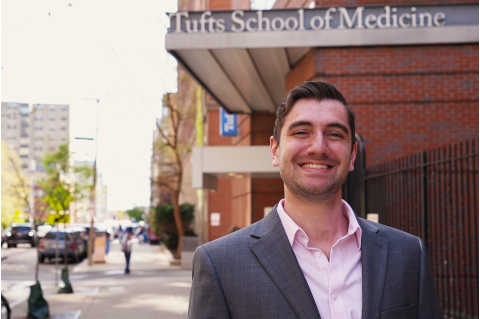Molecular Biology and Microbiology
A global consortium award supports Tufts‑led research to improve early‑stage antibiotic discovery for drug‑resistant Gram‑negative bacteria.
Scientists discover that Candida albicans, overly abundant in people with alcohol use disorder, triggers immune response that alters dopamine signaling in mice.
A look at how the body’s multi-pronged defenses work, plus advice from an immunologist on how to strengthen them.
Tufts researchers’ approach uncovers how TB treatments can best work together at the cellular level to speed better cures.
A computational microbiologist uses machine learning to unlock the relationship between the gut microbiome and brain development in infants and toddlers.
A physician-scientist modifies bacteria to secrete beneficial proteins that could help people with inflammatory bowel disease.
Growing up in tick country led Dr. Jeffrey Bourgeois to a postdoc at Tufts and a future as an independent Lyme disease researcher aiming to break the cycle of transmission.
For Tufts Institute for Artificial Intelligence’s launch, presenters set the stage for collaboration.
From the lab bench to patient care, Peter Gwynne’s research at TUSM is advancing the fight against Lyme disease with critical diagnostics and collaborative science.
Subscribe to Molecular Biology and Microbiology








